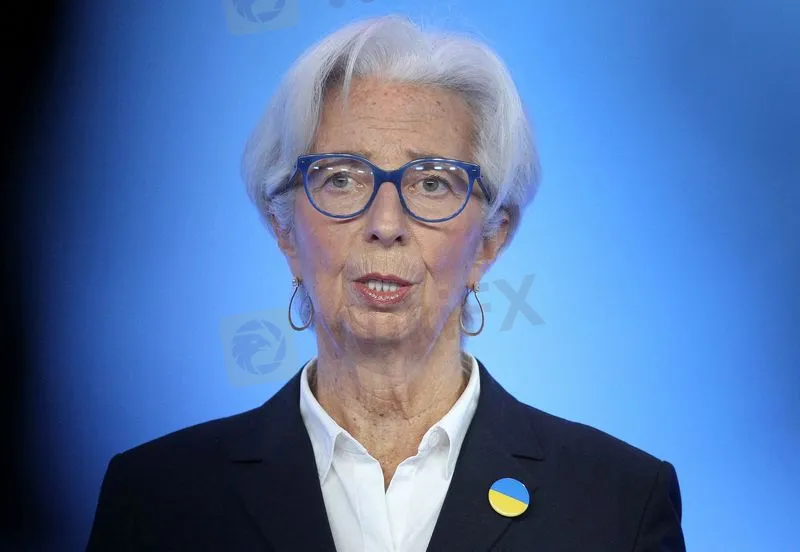简体中文
繁體中文
English
Pусский
日本語
ภาษาไทย
Tiếng Việt
Bahasa Indonesia
Español
हिन्दी
Filippiiniläinen
Français
Deutsch
Português
Türkçe
한국어
العربية
ECB policymakers see July hike as still possible - sources
Abstract:The European Central Bank could still raise its interest rates in July.

The European Central Bank could still raise its interest rates in July but policymakers agreed at a meeting on Thursday to keep their options open for now as the economic outlook is clouded by the Ukraine war, two sources told Reuters.
The sources close to the matter said policymakers were unanimous in backing Thursday's policy message, which says the ECB would end its bond-buying programme in the third quarter of the year and raise rates “some time” after that.
The euro zone's rate-setters differed, however, on some of the risks, such as that long-term inflation expectations veer off the ECB's 2% target.
An ECB spokesman declined to comment. Please download WikiFX for more forex news.
ECB President Christine Lagarde said at a news conference that a de-anchoring of inflation expectations was the last thing the central bank wanted.
She added a rate hike, which was not discussed at Thursday's meeting, could come “a week” or several months after the Asset Purchase Programme ends.
A closely watched market gauge of long-term euro zone inflation expectations was close to 2.4% on Thursday.
Disclaimer:
The views in this article only represent the author's personal views, and do not constitute investment advice on this platform. This platform does not guarantee the accuracy, completeness and timeliness of the information in the article, and will not be liable for any loss caused by the use of or reliance on the information in the article.
Read more

Inflation is Here—How Will It Hit Stocks, Forex, Crypto, and Commodities?
Inflation is a force that ripples through every corner of the financial world, reshaping investment landscapes, shifting market sentiment, and altering the trajectory of economies. From Wall Street to the foreign exchange market, from digital assets to raw materials, inflation's impact is far-reaching. Traders who fail to understand its influence risk being caught off guard, while those who adapt can seize profitable opportunities.

Oil Prices at $90 to $100 Could Push Philippines Inflation Beyond Target
Rising oil prices at $90 to $100 per barrel may push Philippines inflation above the 2-4% target in 2025-2026, impacting food, transport, and electricity costs.

What’s Driving Malaysia’s Inflation in 2025?
Inflation in Malaysia is projected to rise to as much as 2.8% in 2025, driven by domestic policy adjustments, wage increases, and external market fluctuations.

This Economic Indicator Sparks Speculation of a Japan Rate Hike!
The latest data shows that Japan’s base wages in November rose by 2.7% year-on-year, marking the largest increase in 32 years, fueling speculation about a potential BOJ rate hike, but Governor Kazuo Ueda’s dovish remarks in December have shifted market expectations toward a potential delay in policy adjustments.
WikiFX Broker
Latest News
Germany's Election: Immigration, Economy & Political Tensions Take Centre Stage
WikiFX Review: Is IVY Markets Reliable?
Brazilian Man Charged in $290 Million Crypto Ponzi Scheme Affecting 126,000 Investors
ATFX Enhances Trading Platform with BlackArrow Integration
IG 2025 Most Comprehensive Review
Construction Datuk Director Loses RM26.6 Mil to UVKXE Crypto Scam
SEC Drops Coinbase Lawsuit, Signals Crypto Policy Shift
Should You Choose Rock-West or Avoid it?
Scam Couple behind NECCORPO Arrested by Thai Authorities
Franklin Templeton Submitted S-1 Filing for Spot Solana ETF to the SEC on February 21
Currency Calculator







